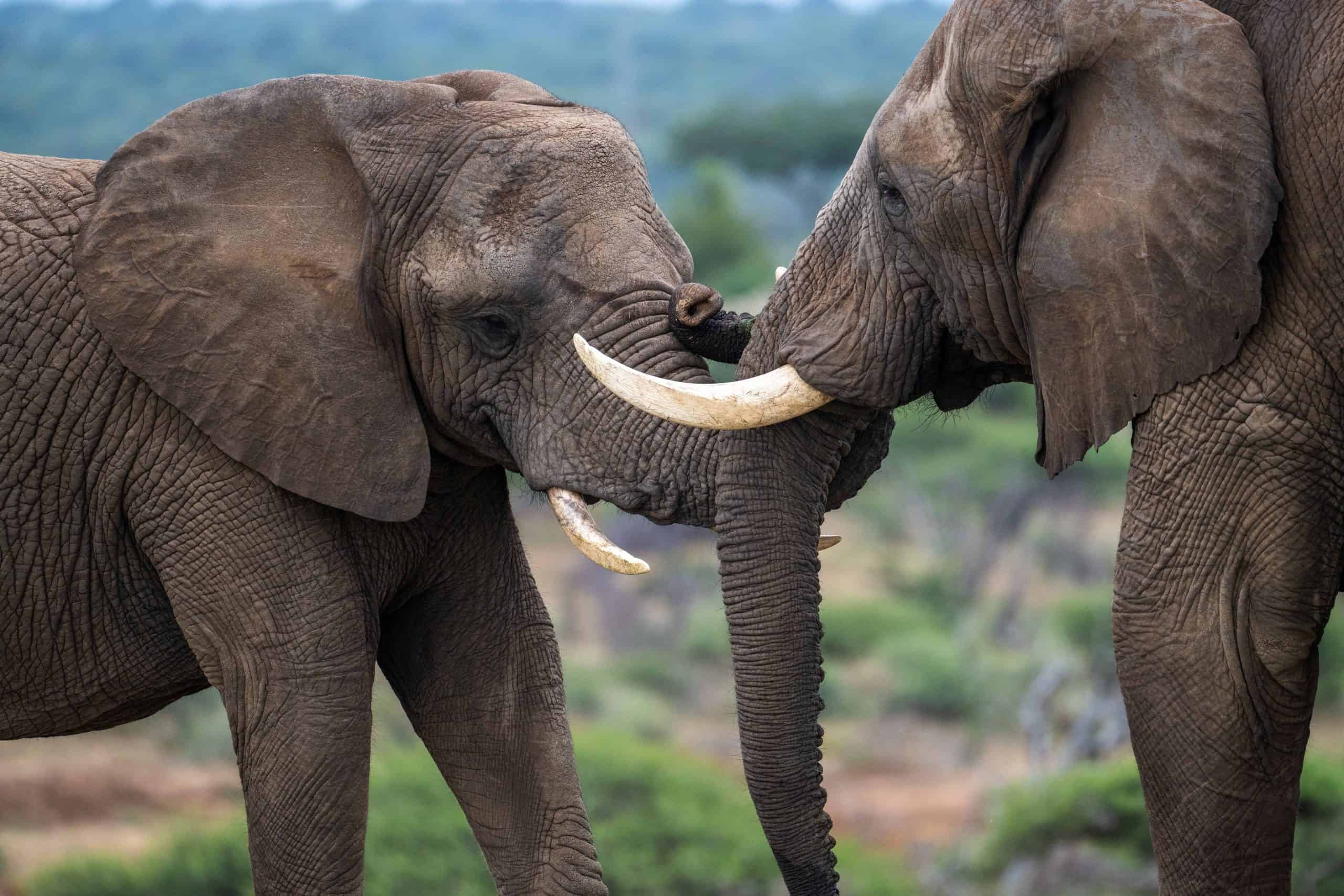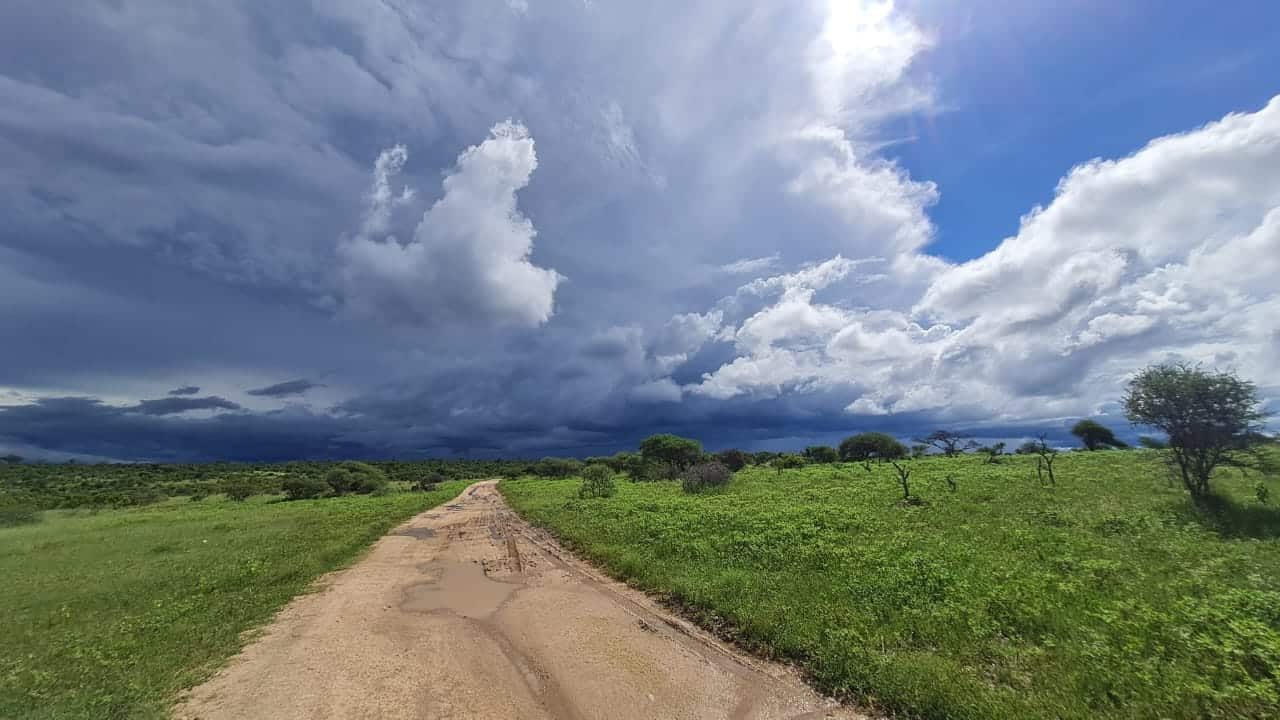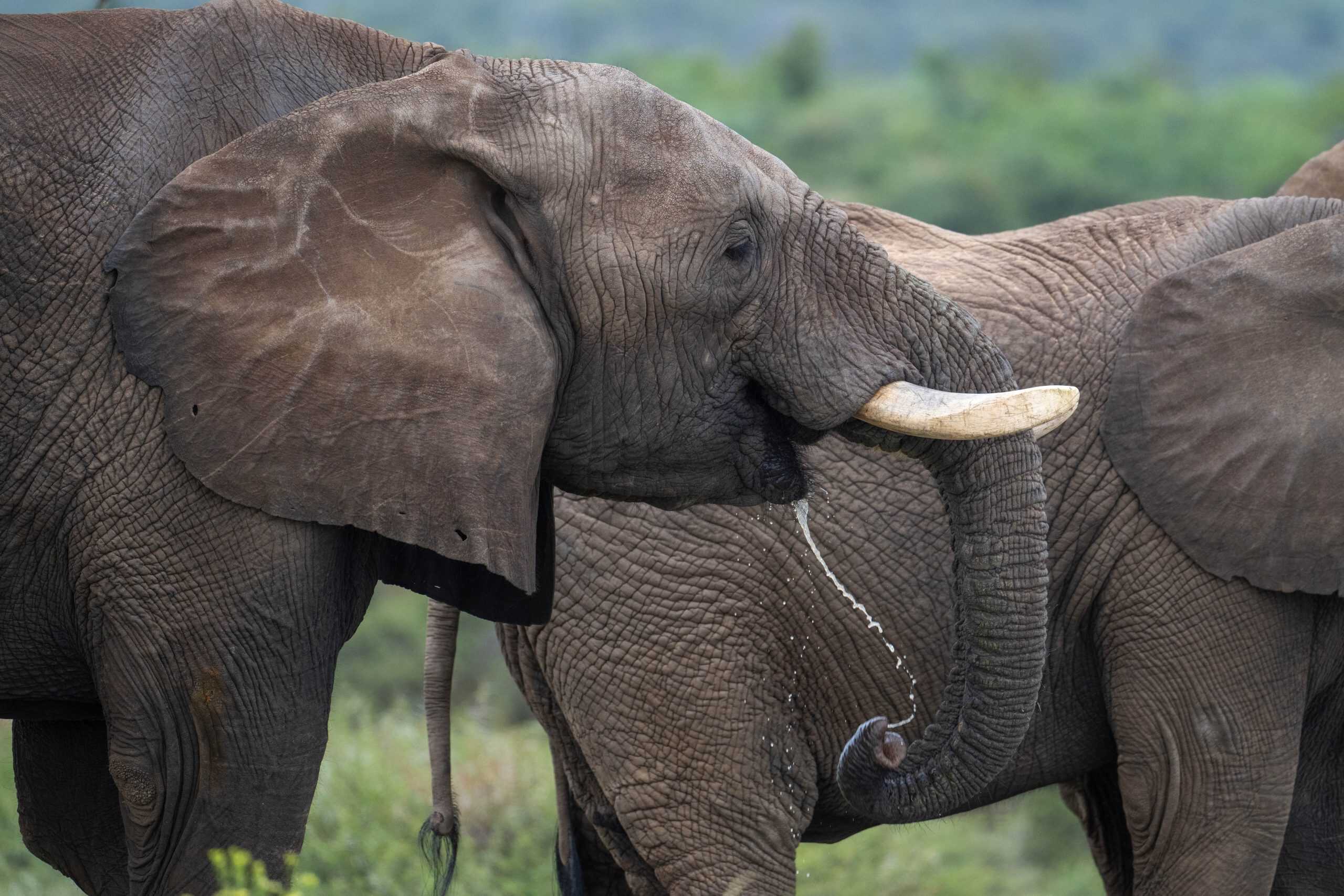Learning from the Giants | A Study into the Personality of Elephants
“There is a powerful force unleashed when young people resolve to make a change.” ― Jane Goodall
Once in a while, we have the time and opportunity to give a nature conservation or environmental science student the chance to carry out valuable practical research work in our reserve, as part of their academic studies. It gives us great joy to be able to assist young students with their dreams to contribute to the field of elephant research, in particular, and to benefit from the added knowledge they are able to share as a result. Previously, we had the pleasure of working with student, Chloe Grotto, who became a resident “poopologist”, studying the Jabulani elephants’ dung.
Now, we are working with South African university student, Chloe Caister who is researching a very special facet of elephant life – personality, for her Masters project. Chloe is researching the science behind determining whether elephants have personalities. To do so, she is observing each member of the herd’s behaviour and recording her findings using certain protocols. Once a profile is created for each elephant, she will conduct novelty experiments, exposing the individual elephants to novelty stimuli to record their variation.

Chloe completed her undergraduate studies at Stellenbosch University, majoring in Psychology, Geography and Environmental Studies. In 2019 she did her Honours in Science for Geography, Archaeology and Environmental Science and now lives in Hoedspruit, working for Provet Wildlife Services, where our trusted friend, wildlife vet, Dr Peter Rogers works. Chloe is currently doing a Masters of Science (part-time) in Animal, Plant and Environmental Sciences through the University of the Witwatersrand, specialising in Elephant Ethology.
ethology ~ noun
the science of animal behaviour
Chloe has been spending time with our carers and the Jabulani herd from a distance to study their behaviours in line with her chosen topic:
Chloe says, “My project aims at studying the behaviour of the Jabulani Herd, specifically them due to their unique set-up as rescued elephants. Through various behavioural experiments, we can determine their personality types and how these affect the interpersonal dynamics within the herd. The Jabulani Herd is well known for its acceptance of orphaned elephant calves. This makes them an integral part of elephant conservation in Southern Africa. By understanding their individual personalities and needs we can cater our husbandry to best suit them as individuals and continue to enhance their quality of life and hopefully we can apply this study to other animals striving to provide quality husbandry for rescued animals due to a lack of knowledge and understanding.”
We are excited to read her findings and share more with you.
Please note: We don’t take interns frequently and also don’t accept volunteers or visitors to the orphanage, for the wellbeing of the orphans. This is to limit foot traffic, maintain hygiene standards and to not stress the elephants or allow orphans to bond with outsiders. The baby elephants bond very closely and deeply with carers and can be emotionally affected when a person leaves and changes.





No comments yet.